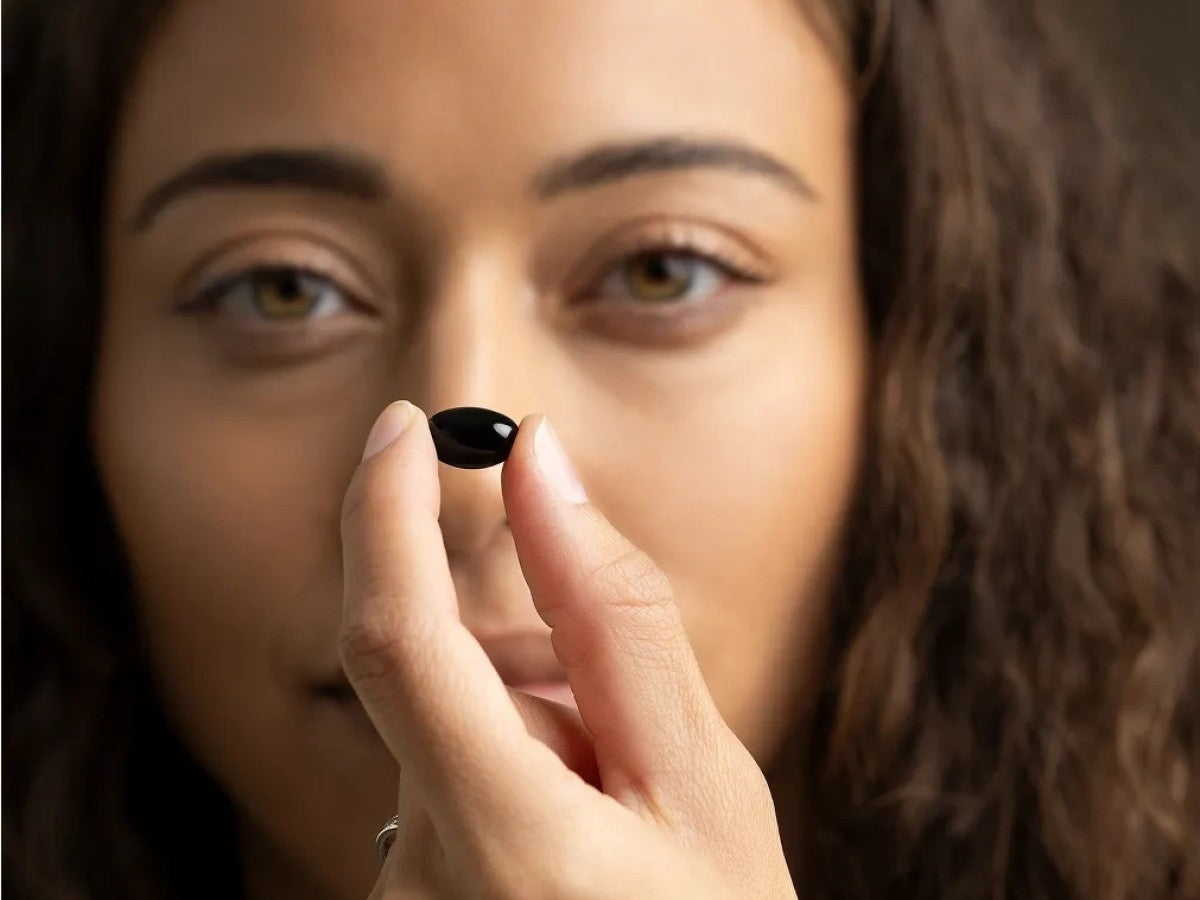How do you know your nutritional supplements are working?
Consumers spend billions on supplements every year – but still wonder if they’re actually making a difference. Prysm iO is the answer.
It helps you make smarter health choices by providing real-time insights into your carotenoid absorption – a reflection of your overall antioxidant status and the first step to knowing if your supplement and lifestyle habits are truly working for you.
Smart science, made simple

Each scan scores your skin’s carotenoid levels and gives you clear insight into whether your diet, supplements, and lifestyle choices are truly making a difference.

Build wellness habits to impact your score, track your journey in the app, and access personalized insights that keep you on the path to wellness.

The more you understand your body, the more confident and motivated you’ll be to make changes that help you look, feel, and live your best.

15 seconds can change your life
Unlock the future of personalized wellness with Prysm iO – Nu Skin’s game-changing innovation.

Wie funktioniert es?
Prysm iO verwendet Tausende von hyperspektralen Absorptionsmessungen pro Sekunde, um den Carotinoidgehalt der Haut genau zu bestimmen. Dazu legst du einfach für 15 Sekunden die Spitze deines Zeigefingers auf das Gerät.
Die zum Patent angemeldete Spectral Rai-Technologie misst die Lichtabsorption und wendet eine Kalibrierung mittels maschinellem Lernen unter Verwendung der Raman-Technologie an, um deinen Carotinoid-Wert zu ermitteln.
Was sind Carotinoide und warum sollte ich mich dafür interessieren?
Carotinoide sind natürliche Antioxidantien, die in vielen Obst- und Gemüsesorten vorkommen und eine wichtige Rolle beim Schutz deines Körpers vor oxidativem Stress spielen. Als starke Antioxidantien helfen sie, Schäden durch freie Radikale zu bekämpfen und unterstützen die allgemeine Gesundheit.
Die Messung des Carotinoidspiegels gibt dir einen Echtzeit-Einblick in deinen Antioxidansstatus, sodass du dein Wohlbefinden durch eine bewusste Lebensweise und gezielte Ernährung und Nahrungsergänzungsmittel verfolgen und verbessern kannst.

What impacts your carotenoid score?
Increase your Prysm score
Explore our Prysm-certified products, scientifically backed to help optimize skin carotenoid scores and support a healthy journey.

Nachverfolgen. Steigern. Einen Unterschied bemerken.
Die Nu Skin Prysm iO-App nutzt KI, um deine Wellness-Routine zu entschlüsseln.
Stay connected. Stay motivated.
More than just a way to see your score, the Nu Skin Prysm iO app is your personal wellness guide. It turns your data into clear, meaningful insights that help you make mindful choices. With the right tools and knowledge at your fingertips, see how it responds as you make changes to your diet, supplements, and lifestyle.

The app delivers your Prysm Score in seconds and translates it into clear, easy-to-understand data. It makes wellness tracking simple, fast, and always at your fingertips.

The app’s intelligence transforms your scan results and lifestyle data into tailored recommendations, trend tracking, and curated product matches. Every insight is precise, actionable, and designed to elevate your wellness journey with confidence.


Questions about Prysm iO? We’ve got answers.
Prysm iO is ideal for anyone who:
- wants to take more control of their health
- wants to know whether their diet is really working
- wants to use supplements in a targeted way
- prefers measurable results to guesswork
Prysm iO is particularly popular with people who value prevention and long-term well-being.
Prysm iO is a smart wellness device that measures your antioxidant status in the body – quickly, painlessly, and without a blood test. It shows you how well your body is currently supplied with important plant nutrients.
Prysm iO measures the so-called carotenoid level through the skin. Carotenoids are powerful antioxidants that are found primarily in fruits and vegetables and play a central role in cell protection, skin health, and general well-being.
Prysm iO uses non-invasive optical technology to measure carotenoid levels in your skin in just 15 seconds. These measurements are converted into your Prysm Score giving you instant feedback on your skin carotenoid level.
Prysm iO uses Spectral Rai Technology, a specific type of light technology, which consists of over 700,000 individuals hyperspectral absorption measurements per scan to accurately assess light absorption in the skin. These measurements are converted into your Prysm Score using a predetermined algorithm powered by AI and referencing Raman technology.
Yes. It’s completely safe, painless, and designed for everyday use.
Prysm iO helps you understand your skin carotenoids levels and make informed choices about diet and supplements. It removes guesswork and helps you optimize your wellness journey.
The Prysm Score is your personal wellness score. It shows you how effective your lifestyle is at the moment, particularly your diet and supplementation. By measuring it regularly, you can track your progress and changes.
For meaningful results, we recommend using Prysm iO once or twice a week. This will help you identify trends and see how changes in your diet or routine are affecting you.
While many trackers only measure activity or sleep, Prysm iO provides biochemical insights that are otherwise difficult to access – easily, quickly, and suitable for everyday use.
No. Prysm iO is a wellness tool, not a medical diagnostic device. It does not replace a medical examination, but it does offer valuable insights to support a healthy lifestyle.
























